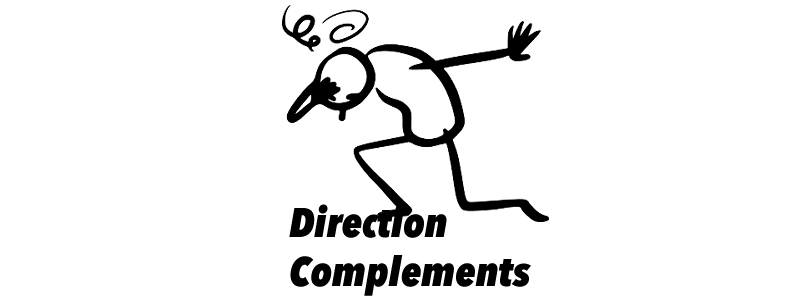Can foreigners buy China or Taiwan stock? Yes, foreigners can buy stocks in China and Taiwan. However, there may be certain restrictions and requirements that they need to comply with. In China, foreign investors can buy stocks through the Qualified Foreign Institutional Investor (QFII) program, the Renminbi Qualified Foreign Institutional Investor (RQFII) program, or the…
Author: tiffany
Direction Complements – Extension 2
This article focuses on the use of direction complements in figurative language, such as in English phrases like ‘clean up’, ‘calm down’, ‘figure out’, etc. If you’re unfamiliar with directional complements, I recommend reading the following links first. 📖 Basic Direction Complement📖 Compound direction complements V + 起來来 qǐlái An action begins It is used…
The passive sentence in Chinese 2
Grammar Point:The passive sentence in Chinese is called 被字句 bèizìjù. It is used to construct passive structures and can introduce either the doer of the action or the action itself. In this article, we are going to practice how to avoid mentioning the “doer” of the action. What is Passive Sentence The passive sentence is formed…
Direction Complements – Extension 1
This article focuses on the use of direction complements in figurative language, such as in English phrases like ‘clean up’, ‘calm down’, ‘figure out’, etc. If you’re unfamiliar with directional complements, I recommend reading the following links first. 📖 Basic Direction Complement📖 Compound direction complements V + 上 shàng or shang 上 shàngshang has 7…
The passive sentence in Chinese – 被 1
Grammar Point:The passive sentence in Chinese is called 被字句 bèizìjù. It is used to construct passive structures and can introduce either the doer of the action or the action itself. In spoken Chinese, the verbs 叫 jiào and 讓让 ràng can be used as substitutes for 被 bèi. All of these sentences are considered passive sentences….
Had Better with zuihao
Grammar Point:One way to express ‘had better’ in Chinese is 最好 zuìhǎo. While 最好 zuìhǎo can function as an adjective meaning ‘best’, it can also be used as an adverb to express ‘had better’ or ‘it would be best’. It’s often utilized when giving advice to someone or politely making demands. Structure S + 最好…
Competition and Season Words in Chinese
Before we look up competition and season words in Chinese, I want to share with you an article. The author Alan is a famous headhunter who lived in Taiwan for several years. He mentioned a lot of different aspects of Taiwan that I had never thought about them. And for sure Taiwan is not the…
Grammar of 把 bǎ 2
Grammar Point:There are 3 functions of 把 bǎ in Chinese. Determination, command, and doing a movement on something that makes a change to it. And since 把 bǎ cannot be translated into English, many English speakers feel awkward using it. But it is a piece of grammar that Chinese native speakers use a lot in…
Had Better with 还是 háishì
Grammar Point:One of the ways to express ‘had better’ in Chinese is 還是还是 háishì…吧 ba. 還是还是 háishì as an adverb can express ‘still’, ‘yet’, and ‘or’, it can also express a preference for an alternative. 吧 ba is often placed in the end, as it’s a suggestion. Structure S + 還还是 háishì + Suggestion + 吧 ba 你nǐ還是háishì換huàn個ge男朋友nánpéngyǒu吧ba!…
Body Parts & Vehicle
Before we look up body parts and vehicle words in Chinese, I want to tell you a ridiculous fact. There are not many psychologists in Taiwan or China. Doing therapy is still considered if you have a terrible mental problem or you are psychotic in my parent’s generation. Since people usually would not share their…






